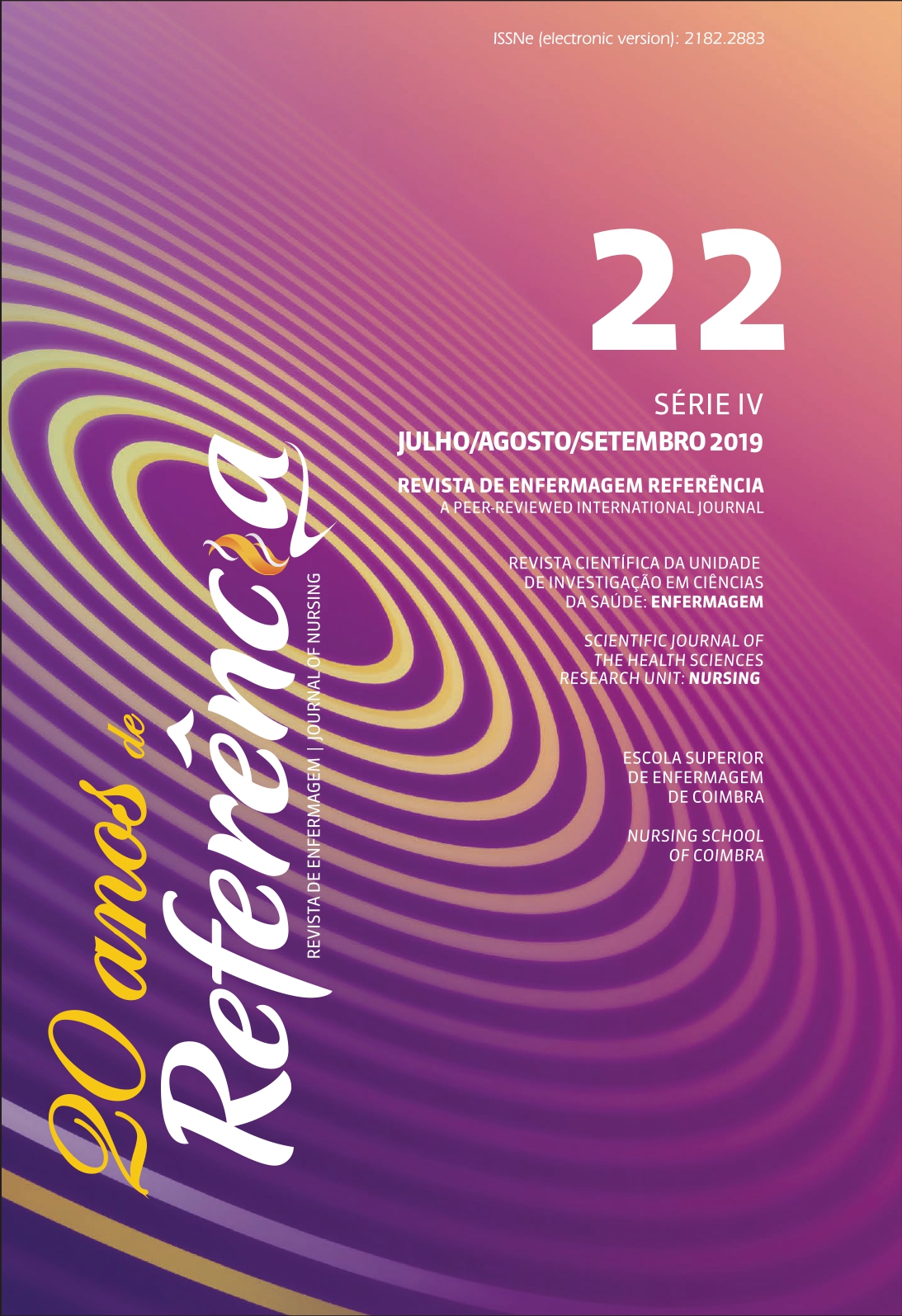Predictors for changing to a non-Nursing profession
DOI:
https://doi.org/10.12707/RIV19010Keywords:
human resources, personnel turnover, job satisfaction, nursingAbstract
Background: Nurses’ predisposition to change their profession lies within the scope of nurse turnover. Understanding the reasons why nurses want to switch to another organization or even leave the profession is important because this movement has a negative impact on the workgroup and the organization.
Objective: To determine the propensity to leave the nursing profession.
Methodology: Descriptive, correlational, cross-sectional, and quantitative study. The non-probability sample of 463 nurses was recruited through the snowball method.
Results: The nurses who were under the age of 40 and worked in the public sector were more willing to leave the nursing profession. The greater the satisfaction with the profession and the greater the professional autonomy and recognition, the lower the nurses’ probability to change to another profession.
Conclusions: Health organizations should concentrate on retaining their nurses by adopting human resource strategies that value them and organizational models focused on motivation and satisfaction.
Downloads
References
Al-Hussain, K., & Aleem, M. (2014). Impact of job satisfaction on employee turnover: An empirical study of Autonomous Medical Institutions of Pakistan. Journal of International Studies, 7(1), 122-132. doi:10.14254/2071-8330.2014/7-1/11.
Bilhim, J. A. (2005). Teoria organizacional: Estruturas e pessoas. Lisboa, Portugal: ISCSP.
Castilho, A. (2014). Eventos adversos nos cuidados de enfermagem ao doente internado: Contributos para a política de segurança (Tese de doutoramento). Universidade do Porto, Instituto de Ciências Biomédicas Abel Salazar, Portugal. Recuperado de http://hdl.handle.net/10216/78357
Chin, W., Guo, Y.-L., Hung, Y.-J., Hsieh, Y.-T., Wang, L.-J., & Shiao, J. S.-C. (2019). Workplace justice and intention to leave the nursing profession. Nursing Ethics, 26(1), 307-319. doi:10.1177/0969733016687160
Duffield, C., Diers, D., O’Brien-Pallas, L., Aisbett, C., Roche, M., King, M., & Aisbett, K. (2011). Nursing staffing, nursing workload, the work environment and patient outcomes. Applied Nursing Research, 24(4), 244-255. doi:10.1016/j.apnr.2009.12.004.
Hayes, L., O’Brien-Pallas, L., Duffield, C., Shamian, J., Buchan, J. Hughes, F., Laschinger, H., & North, N. (2012). Nurse turnover: A literature review: An update. International Journal of Nursing Studies, 49(7), 889- 905. doi: 10.1016/j.ijnurstu.2011.10.001
International Council of Nurses. (ICN). (2002). Career moves and migration: Critical questions. Geneva zerland: Author.
Lu, H., While, A. E. & Barriball, K. L. (2005). Job satisfaction among nurses: A literature review. International Journal of Nursing Studies, 42(2), 211–227. doi: 10.1016/j.ijnurstu.2004.09.003
Mamede, R. P. (2015). O que fazer com este país. Barcarena, Portugal: Marcador.
Neumaier, C. A., Corrêa, A. C., Soares, M. C., & Könzgen, S. M. (2015). O cuidado de enfermagem e sua evolução histórica: Uma revisão integrativa. Cultura de los Cuidados, 19(43). doi:10.14198/cuid.2015.43.09
North, N., & Hughes, F. (2006). Methodological challenges to researching nursing turnover in New Zealand: A progress report of a national study. Asia Pacific Journal of Health Management, 1(1), 45-51. Recuperado de https://search.informit.com.au/documentSummary;dn=628733330779463;res=IELHEA
Organization for Economic Cooperation and Development. (2015). “Nurses”, in health at a glance 2015: OECD indicators. Paris, France: Author. doi:10.1787/health_glance-2015-26-en
Organization for Economic Cooperation and Development. (2017). State of health in the EU, Portugal: Country health profile 2017. Recuperado de http://www.oecd-ilibrary.org/social-issues-migration-health/portugal-country-health-profile-2017_9789264283527-en
Ordem dos Enfermeiros. (2014). Dados estatísticos a 31-12-2013. Lisboa, Portugal: Autor.
Poeira, A. (2017). Rotatividade externa dos enfermeiros em Portugal (Tese de doutoramento). Universidade do Porto, Instituto Ciências Biomédicas Abel Salazar, Portugal. Recuperado de http://hdl.handle.net/10216/88637
Rudman, A., Gustavsson, P., & Hultell, D. (2014). A prospective study of nurses’ intentions to leave the profession during their first five years of practice in Sweden. International Journal of Nursing Studies, 51(4), 612-624. doi:10.1016/j.ijnurstu.2013.09.012
Santos, O., Biscaia, S. A., Antunes, A. R., Craveiro, I., Júnior, A., Caldeira, R., & Charondière, P. (2007). Os Centros de Saúde em Portugal: A satisfação dos utentes e dos profissionais (1ª ed.). Lisboa, Portugal: Ministério da Saúde. Recuperado de http://www.ago.com.pt/data/files/pdf/Partilhar%20saude/Portugal/CdSaude_Portugal_2007.pdf
Simon, M., Müller, B. H., & Hasselhorn, H. M. (2010). Leaving the organization or the profession: A multilevel analysis of nurses’ intentions. Journal of Advanced Nursing, 66(3), 616-626. doi:10.1111/j.1365-2648.2009.05204.x
Sindicato dos Enfermeiros Portugueses. (2016). Hospitais estão a dever mais de 67 mil dias de folga aos enfermeiros. Recuperado de https://www.sep.org.pt/artigo/imprensa/hospitais-estao-a-dever-mais-de-67-mil-dias-de-folga-aos-enfermeiros/

















